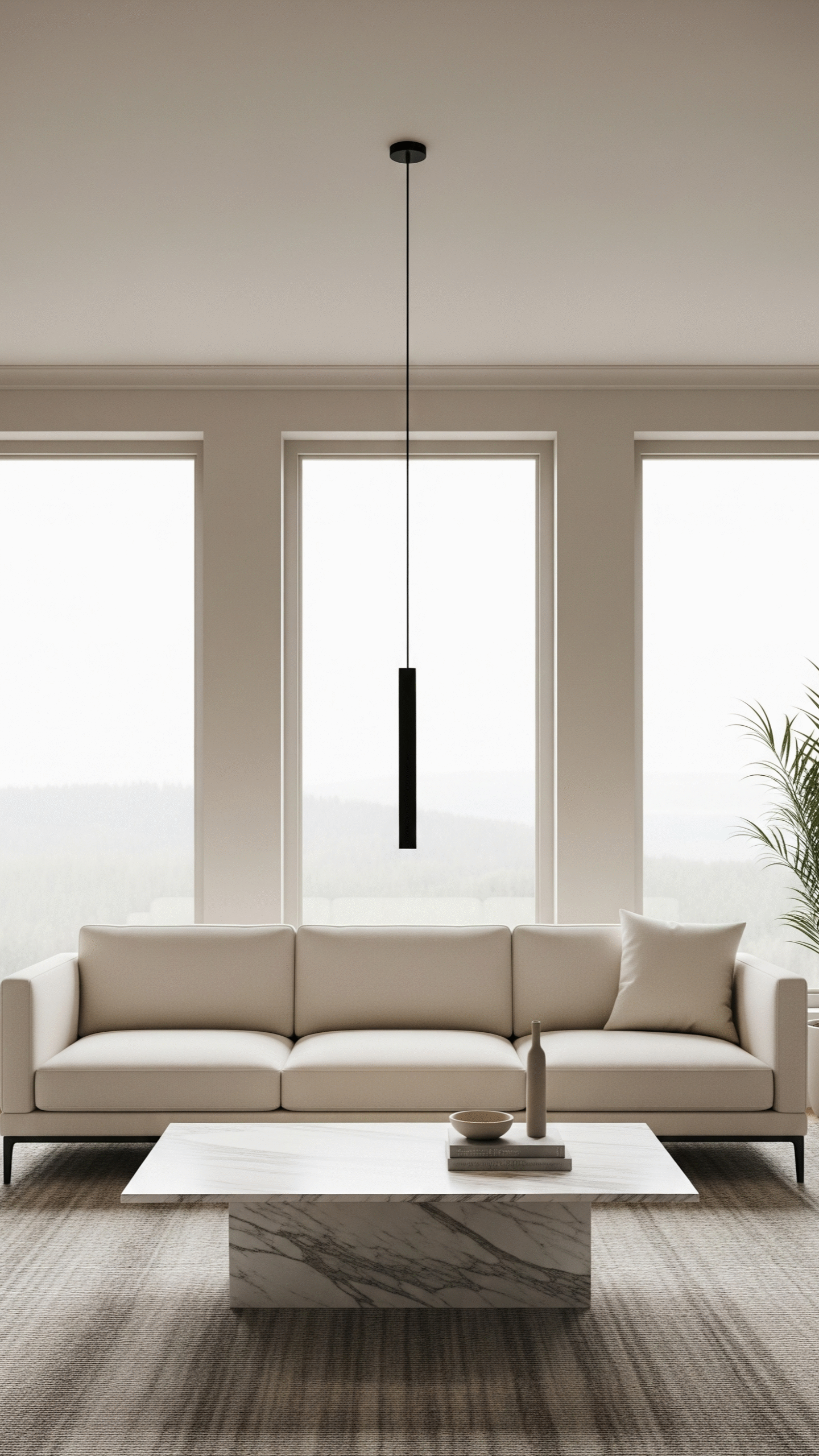
Minimalist Living Room Ideas for a Modern and Calm Home
If you’ve been searching for ways to create a home that feels open, balanced, and stylish, a Minimalist Living Room may be exactly what you need. Minimalism is not about stripping away comfort or personality—it’s about designing a space where everything has a purpose, and nothing feels overwhelming. By focusing on clean lines, functional furniture, and a calming color palette, you can achieve a living space that feels both modern and inviting.
In this article, we’ll walk through simple tips, styling ideas, and inspiring visuals to help you design the perfect minimalist living room that matches your lifestyle.
1. Choose a Neutral Base
Minimalist interiors often rely on neutral tones such as white, beige, gray, and soft earth shades. These colors act as a calming backdrop while allowing furniture and decor to stand out. A neutral base also makes your living room feel brighter and more spacious, especially if you have limited natural light.
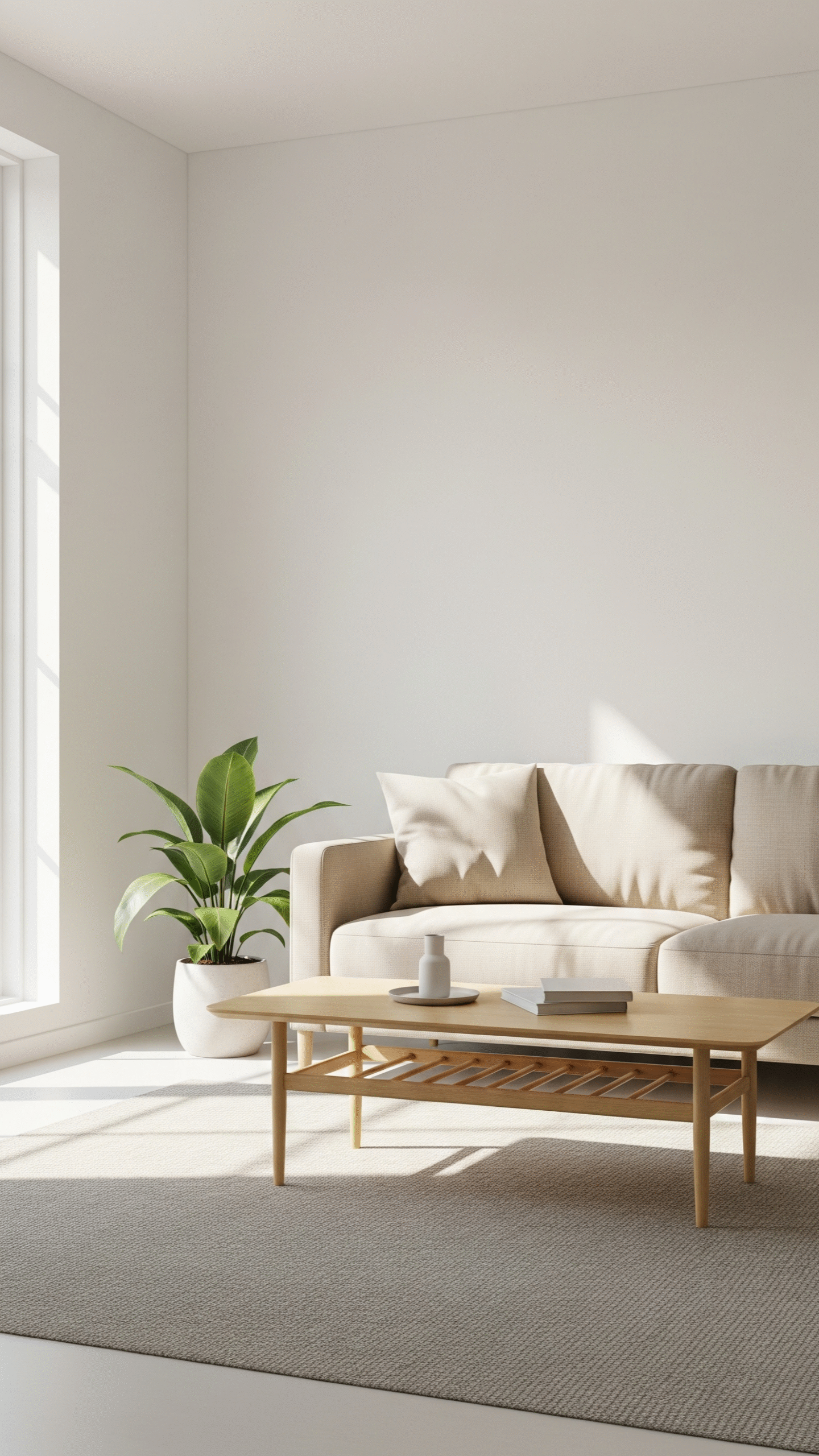
2. Invest in Functional Furniture
Every piece of furniture in a minimalist living room should serve a purpose. Opt for a sleek sofa, a low-profile coffee table, and multifunctional storage solutions. Floating shelves, wall-mounted units, and nesting tables are perfect for saving space while keeping the design clutter-free.
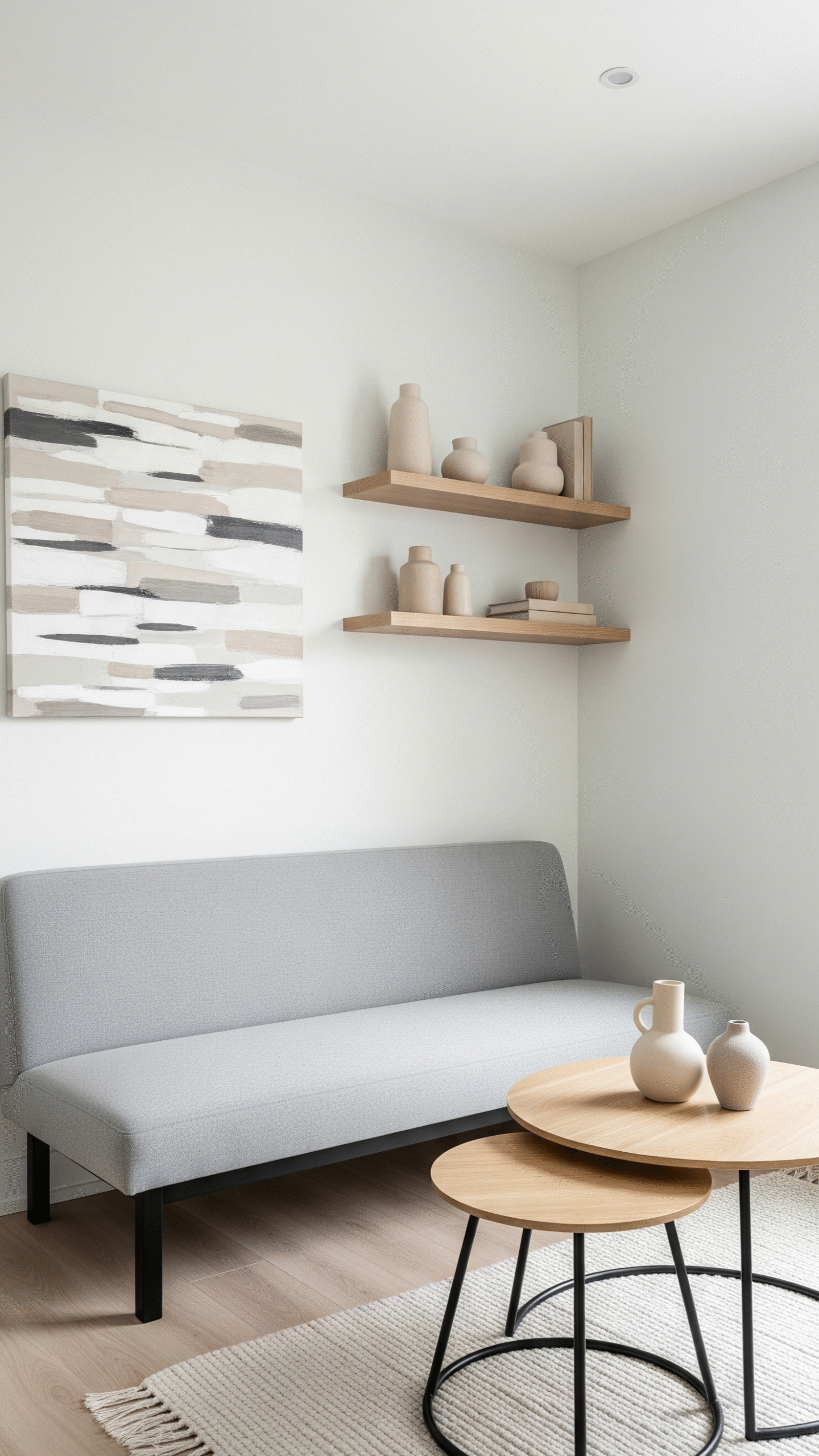
3. Layer Textures for Warmth
Minimalism doesn’t mean your home has to feel cold. Add depth to your living room with cozy textiles such as throw blankets, area rugs, and linen cushions. Natural materials like wood, jute, and cotton can make the space warm and inviting.
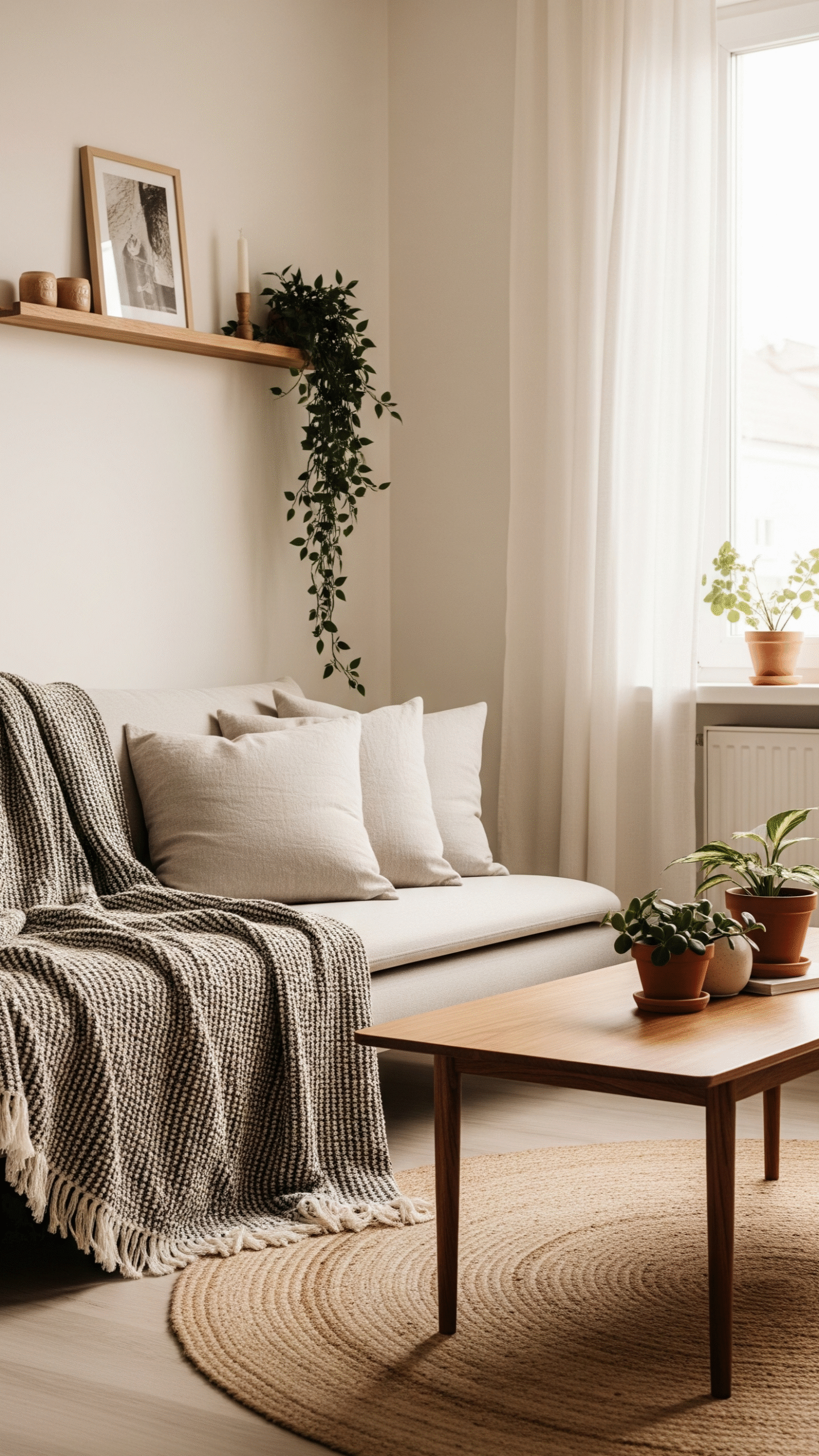
4. Maximize Natural Light
A Minimalist Living Room shines when it’s filled with natural light. Use sheer curtains instead of heavy drapes to allow sunlight to flow in. Large mirrors can also reflect light and make the space appear more open.
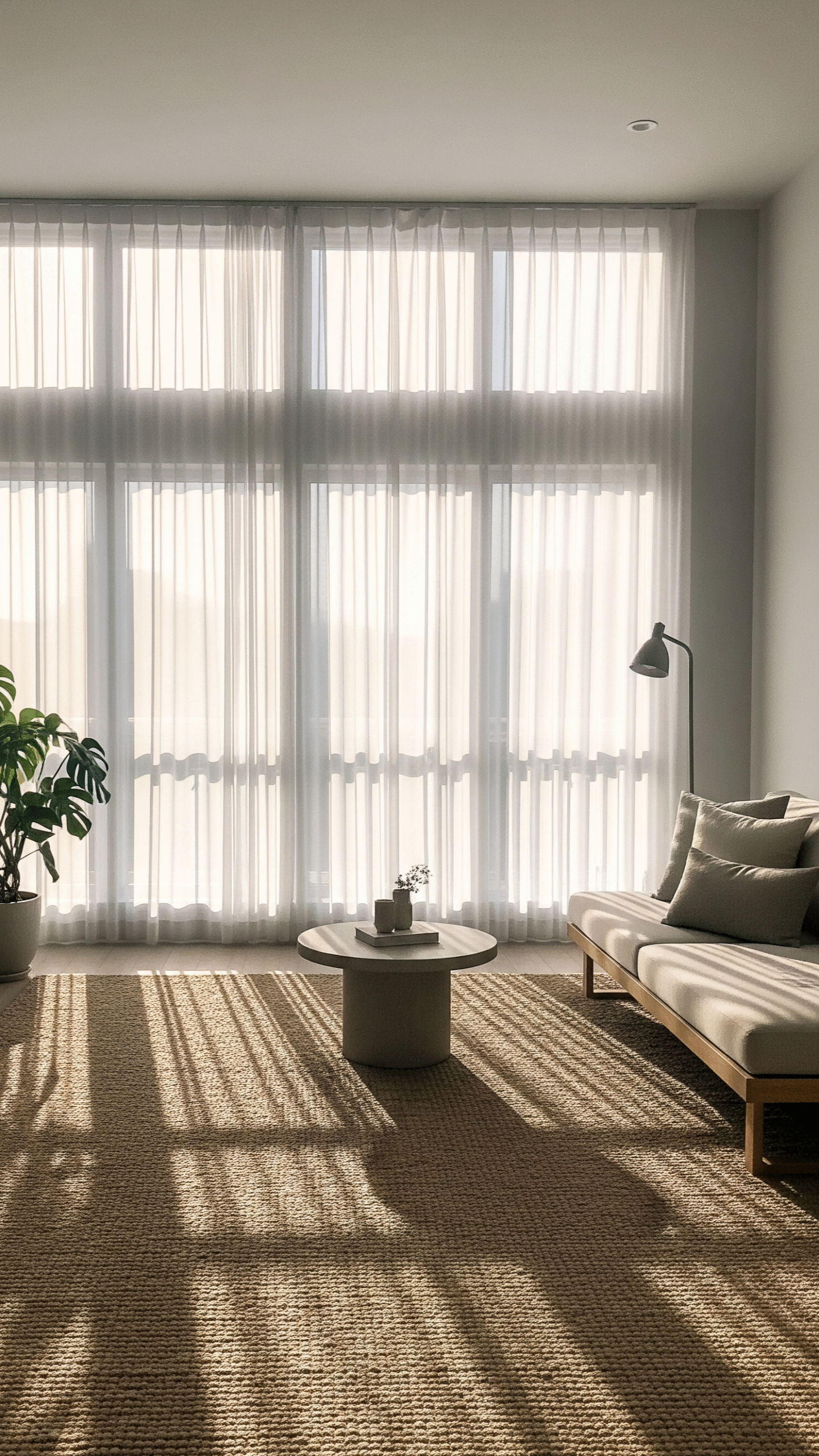
5. Add Greenery for Freshness
Plants instantly bring life into a minimalist space. Whether it’s a tall fiddle-leaf fig in the corner or small succulents on a coffee table, greenery balances the clean aesthetic with natural warmth.
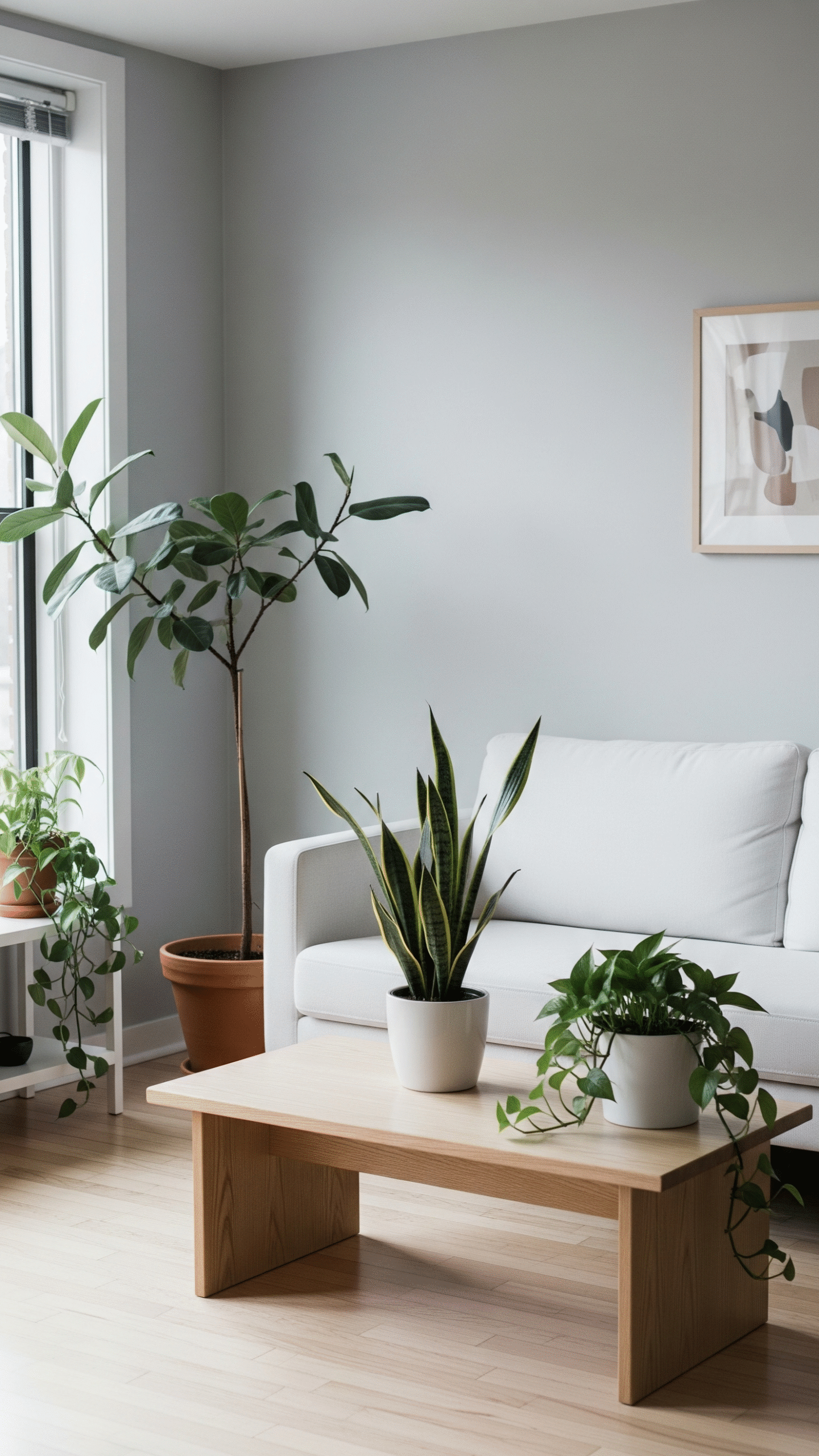
6. Focus on Statement Lighting
Lighting is more than just functional—it can also serve as a design element. A sleek floor lamp, geometric pendant light, or modern chandelier can make your living room elegant without overwhelming the minimalist vibe.
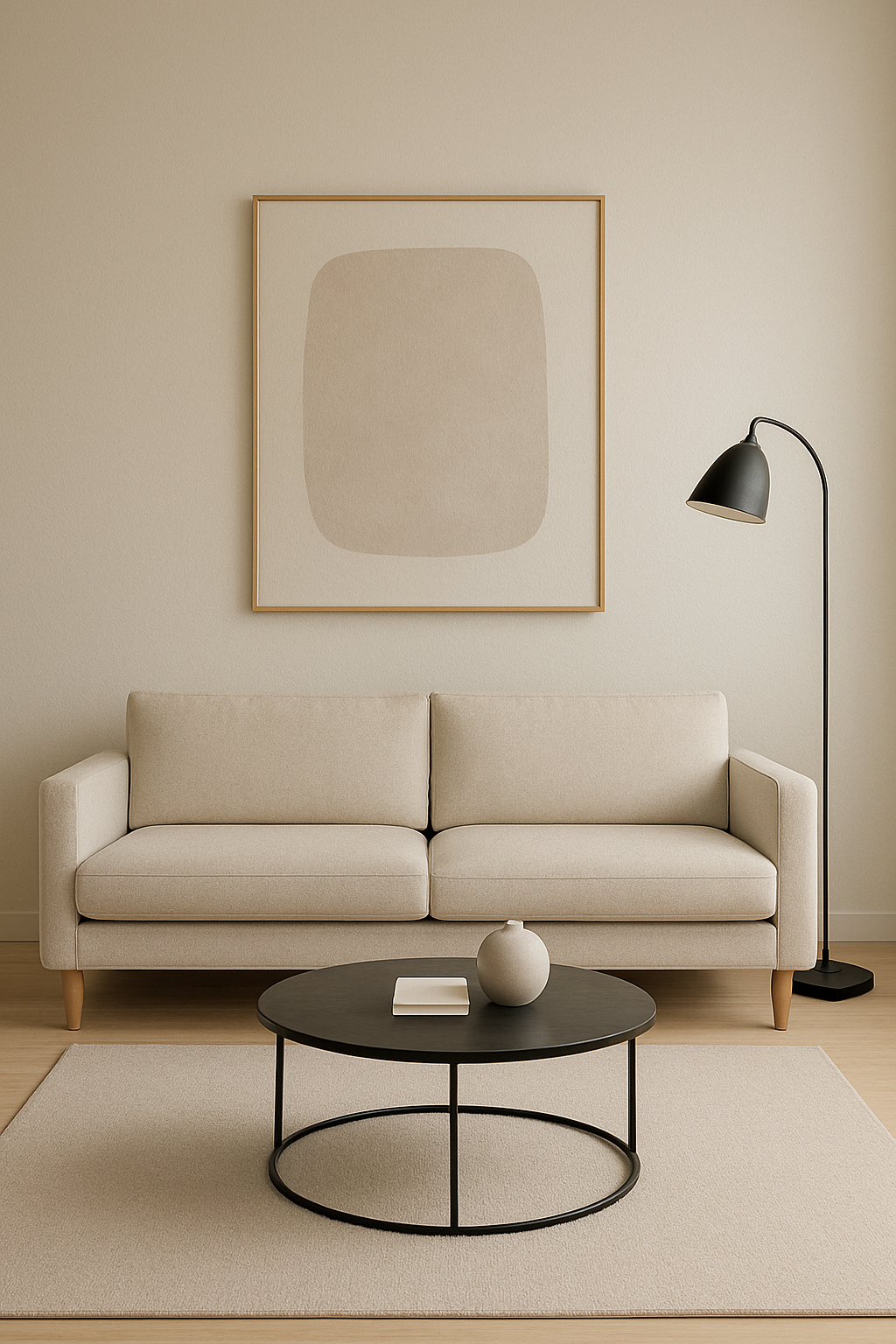
7. Keep Decor Minimal but Impactful
Instead of cluttering surfaces with too many accessories, choose a few statement pieces like abstract artwork, a sculptural vase, or a textured rug. Less is truly more in a minimalist living room.
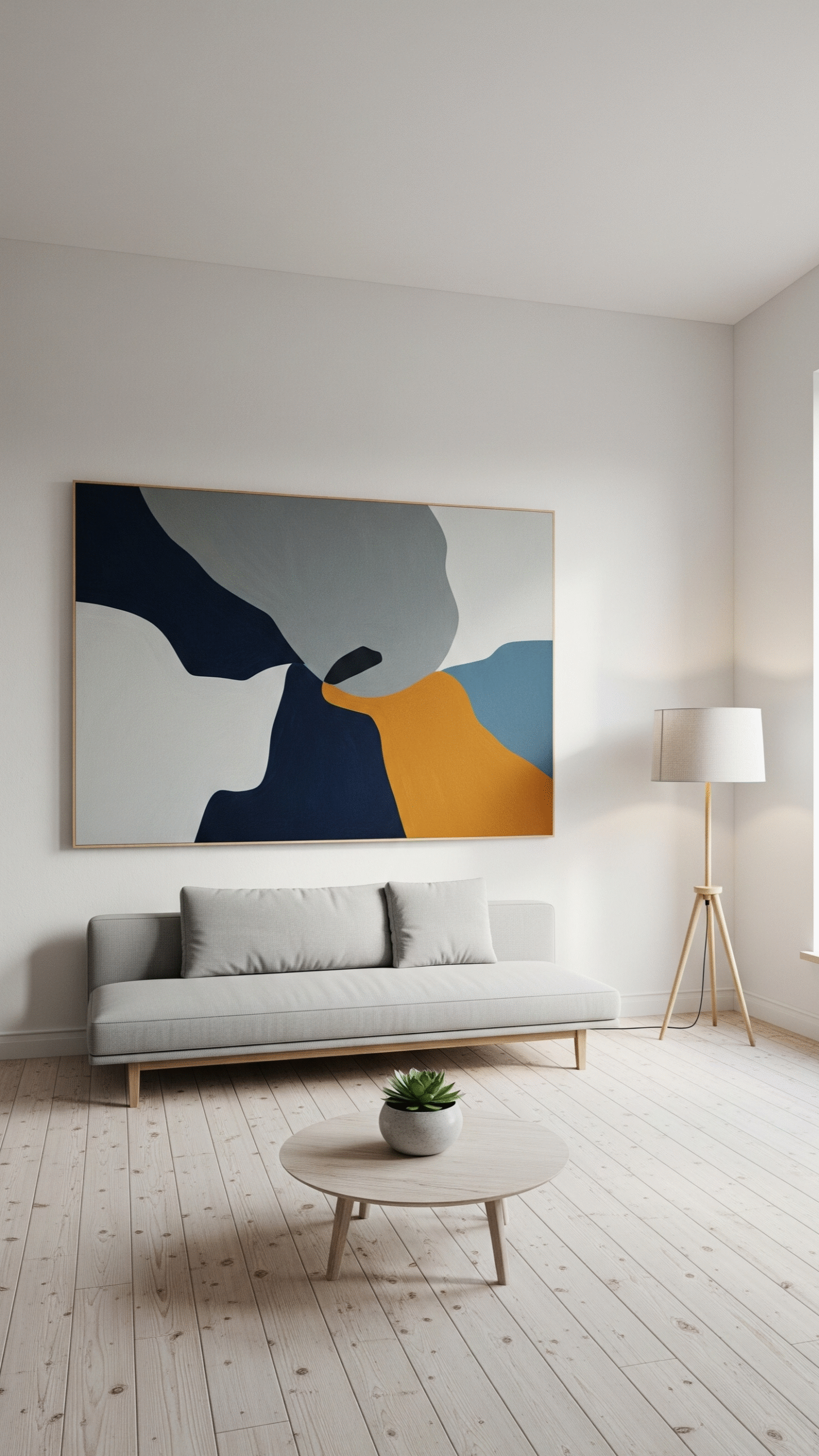
8. Embrace Open Space
Don’t feel the need to fill every corner. Empty space is an essential part of minimalism—it allows the room to breathe and creates a sense of balance.
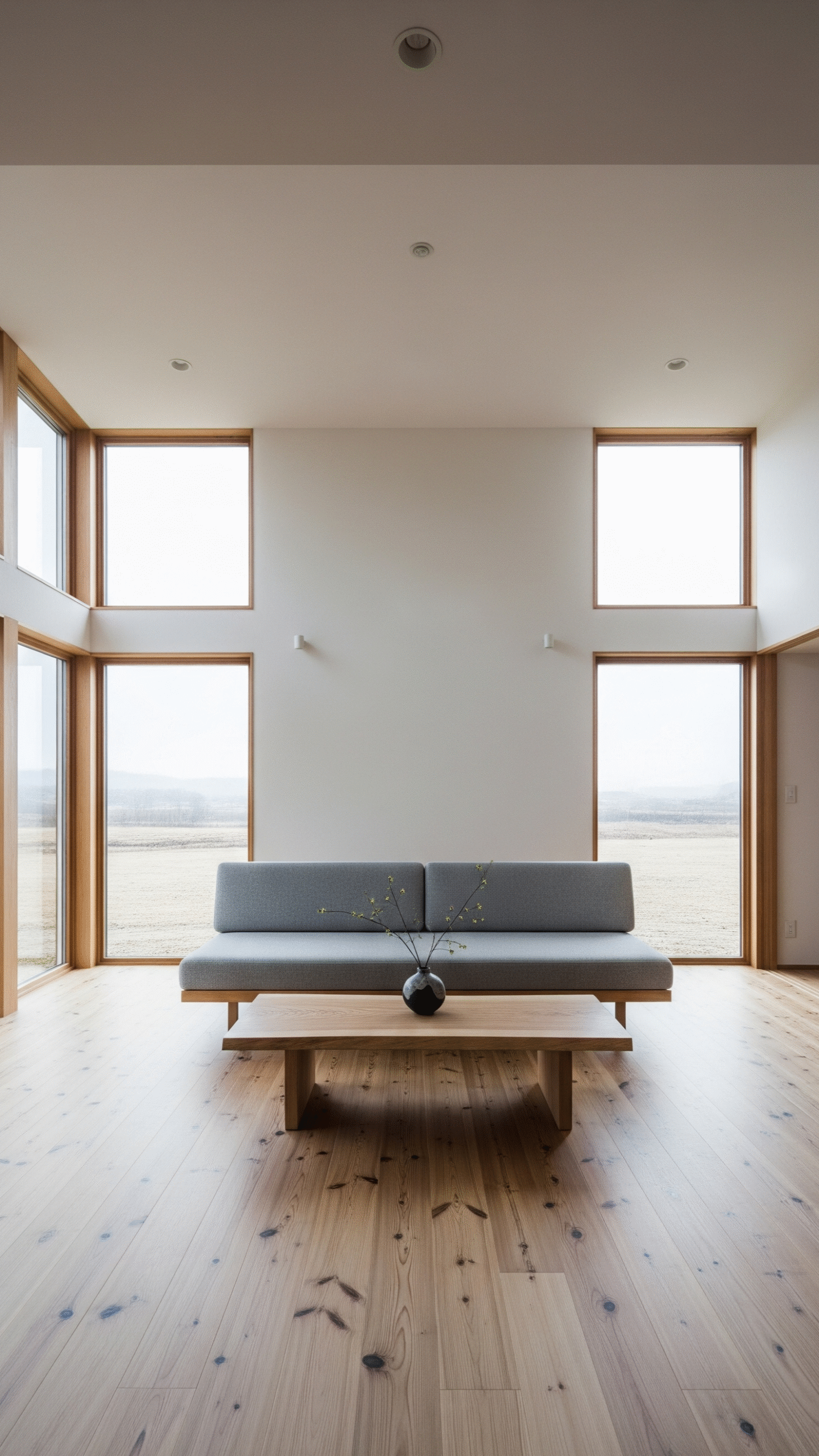
9. Blend Modern and Cozy Elements
A Minimalist Living Room should reflect your personality. Combine modern furniture with cozy elements such as soft textiles, candles, or a reading nook to make the space feel lived-in yet stylish.
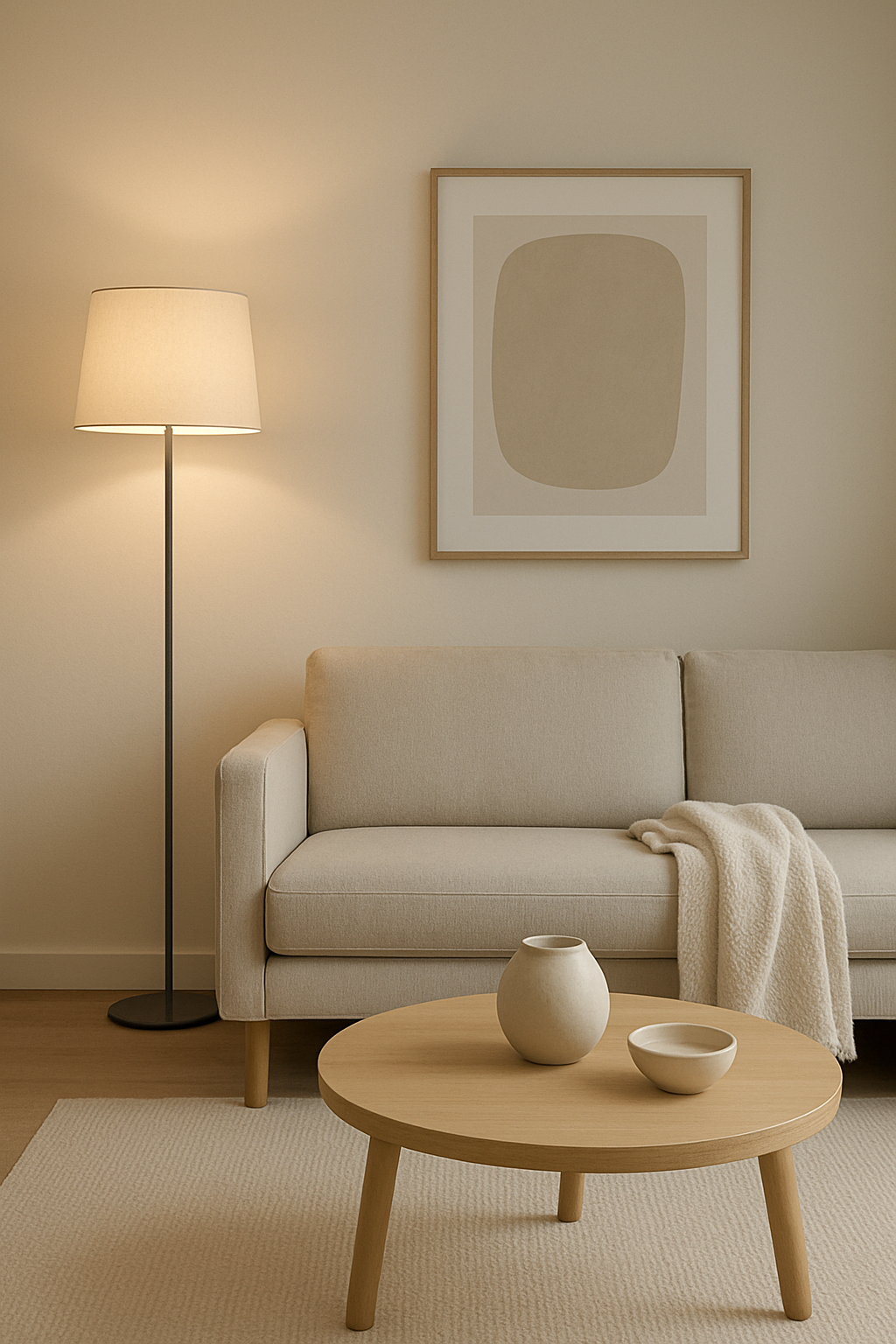
10. Personalize with Subtle Touches
Minimalism doesn’t mean your home has to look impersonal. Add subtle decor like family photos in sleek frames, a stack of curated books, or a simple ceramic vase to make the space uniquely yours.
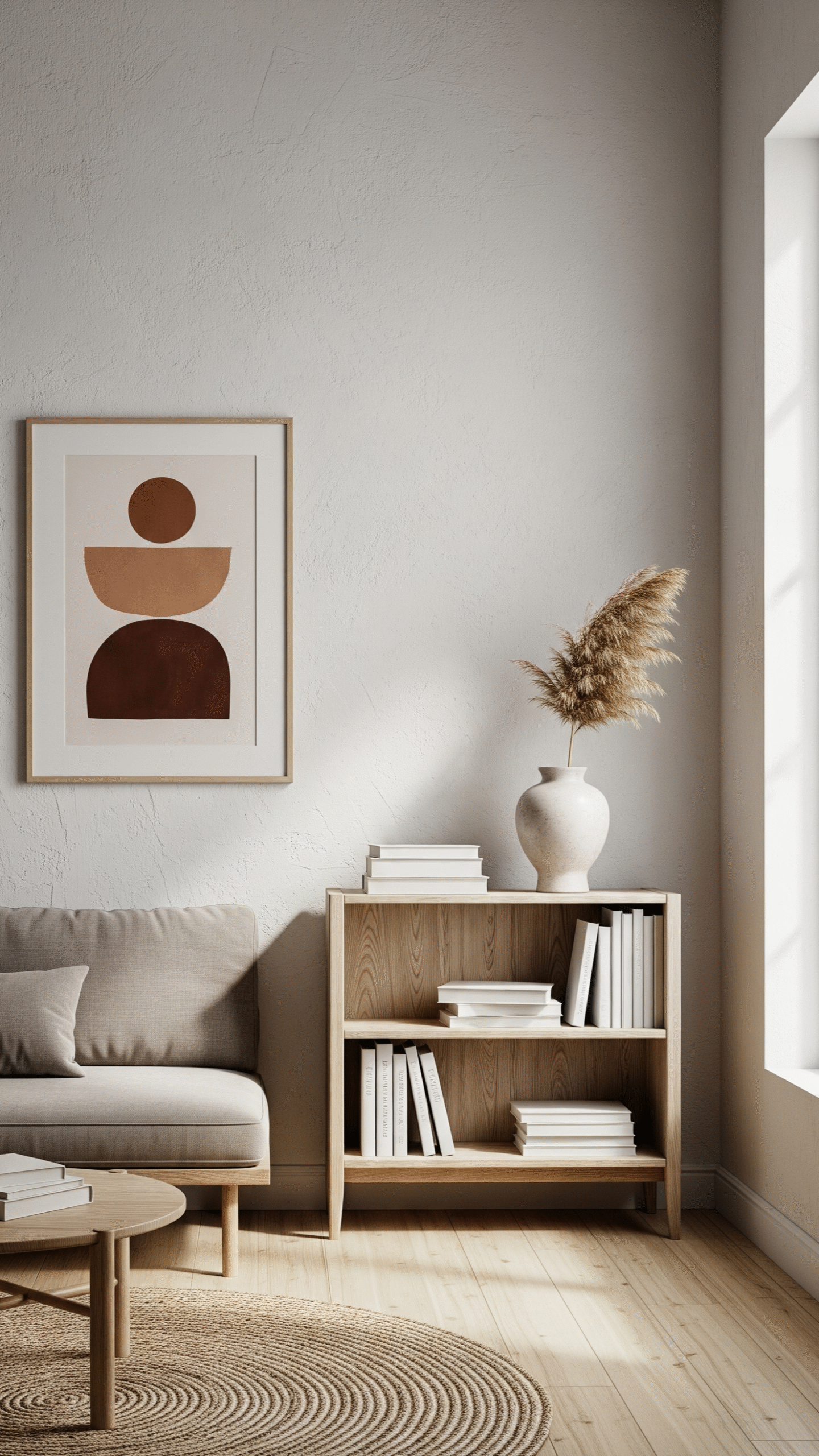
Final Thoughts
Designing a Minimalist Living Room is about finding harmony between style, function, and comfort. By choosing neutral colors, functional furniture, natural light, and a few impactful decor pieces, you can create a home that feels calm, welcoming, and timeless. Minimalism isn’t about having less—it’s about making space for what truly matters.
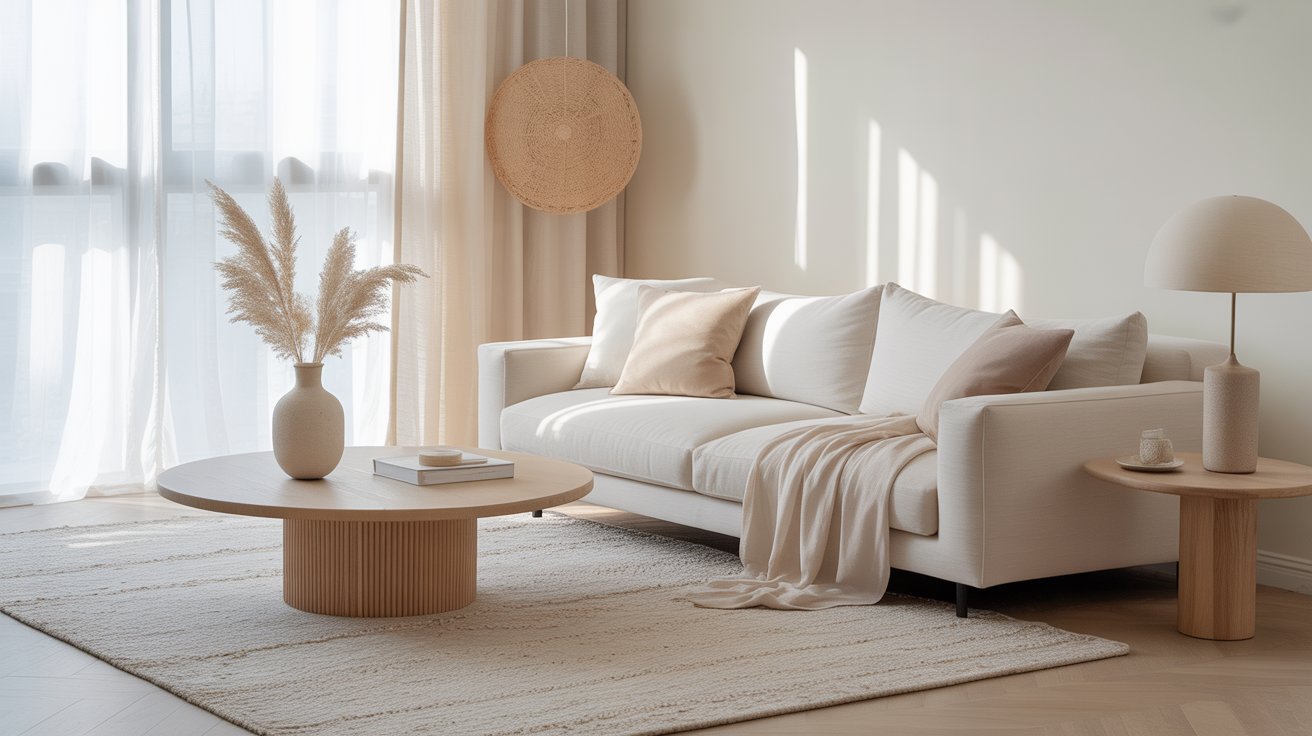
Minimalist Living Room Ideas for a Stylish and Calm Home
Creating a beautiful home doesn’t always require an abundance of furniture, accessories, or bold colors. In fact, sometimes less is more. A minimalist living room is the perfect example of how simplicity can bring elegance, comfort, and timeless appeal to your space. Whether you live in a compact apartment, a family home, or a cozy studio, adopting a minimalist approach will help you design a stylish yet calm atmosphere where every item has a purpose.
Why Choose a Minimalist Living Room?
A minimalist living room is all about clean lines, neutral tones, and purposeful design. This style isn’t just about decoration—it’s about creating a peaceful retreat that allows you to breathe, relax, and feel grounded. Unlike cluttered spaces, minimalism emphasizes functionality and balance. Every piece of furniture serves a purpose while also enhancing the overall aesthetic.
In today’s fast-paced world, having a clutter-free, well-designed space can reduce stress and increase comfort. A minimalist living room doesn’t feel empty; it feels intentional, calm, and spacious, even if you don’t have a large area to work with.
Key Elements of a Minimalist Living Room
1. Neutral Color Palette
Soft shades like white, beige, gray, and muted earth tones are the backbone of minimalist design. These colors create a calming foundation and allow natural light to brighten the room effortlessly. Adding subtle pops of black, green, or wood accents can bring depth without overwhelming the simplicity.
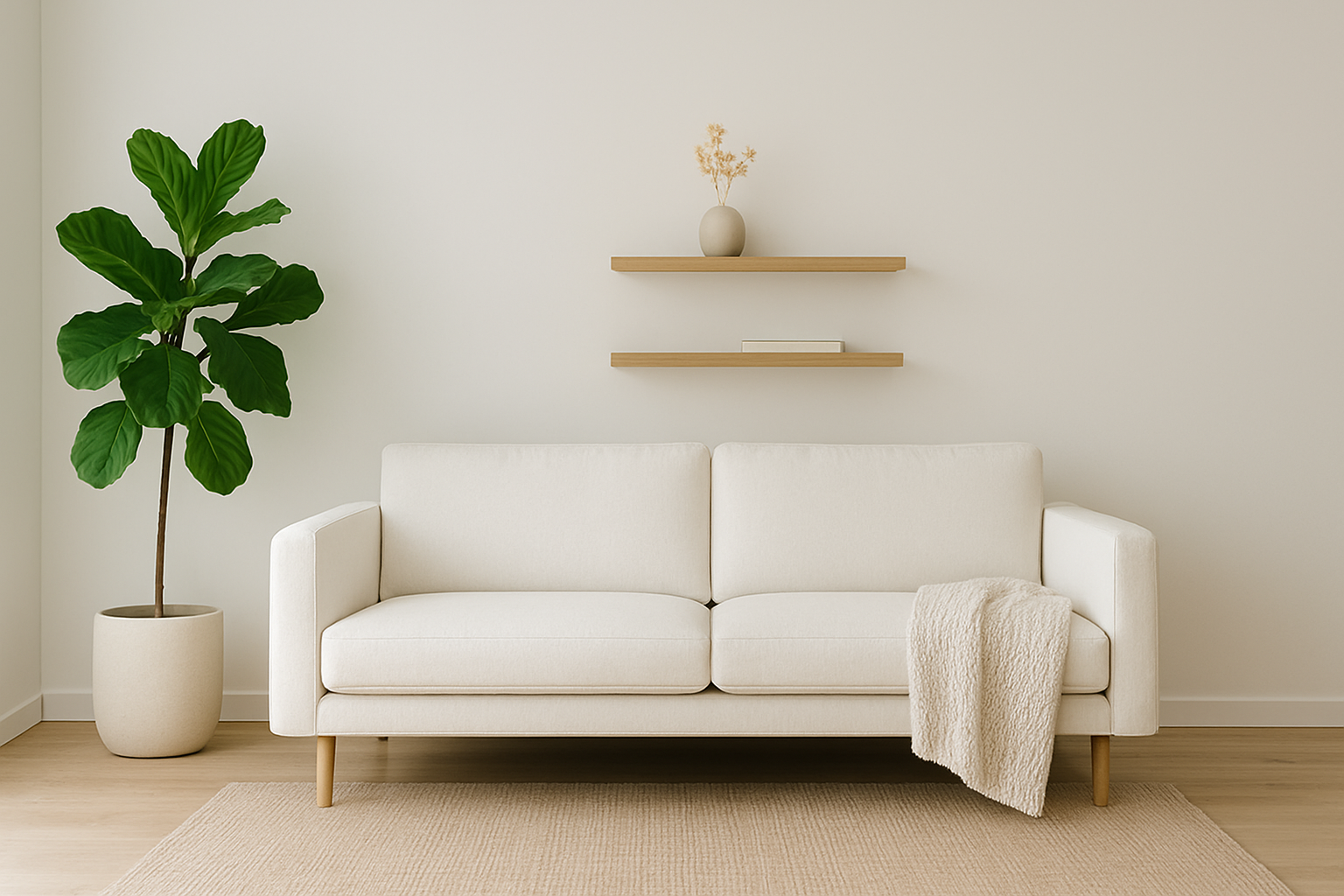
2. Functional Furniture
Choose pieces that combine comfort with clean design. Sofas with simple shapes, low-profile coffee tables, and versatile shelving units are perfect. Avoid oversized or overly ornate furniture, and instead, focus on items that are practical and timeless.
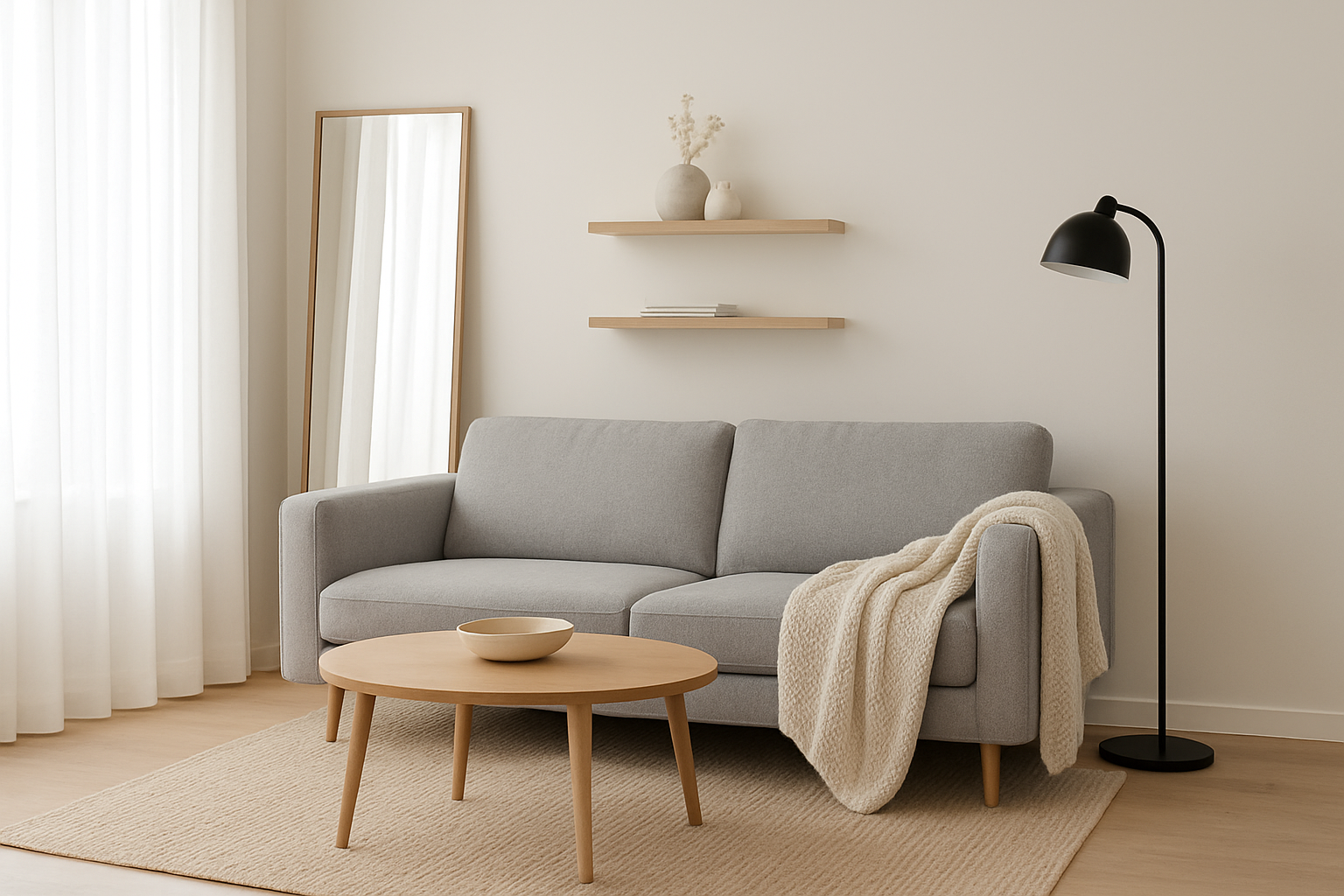
3. Natural Light
One of the most beautiful features of a minimalist living room is how it embraces natural light. Large windows, sheer curtains, and strategically placed mirrors enhance brightness, making the space feel larger and more open.
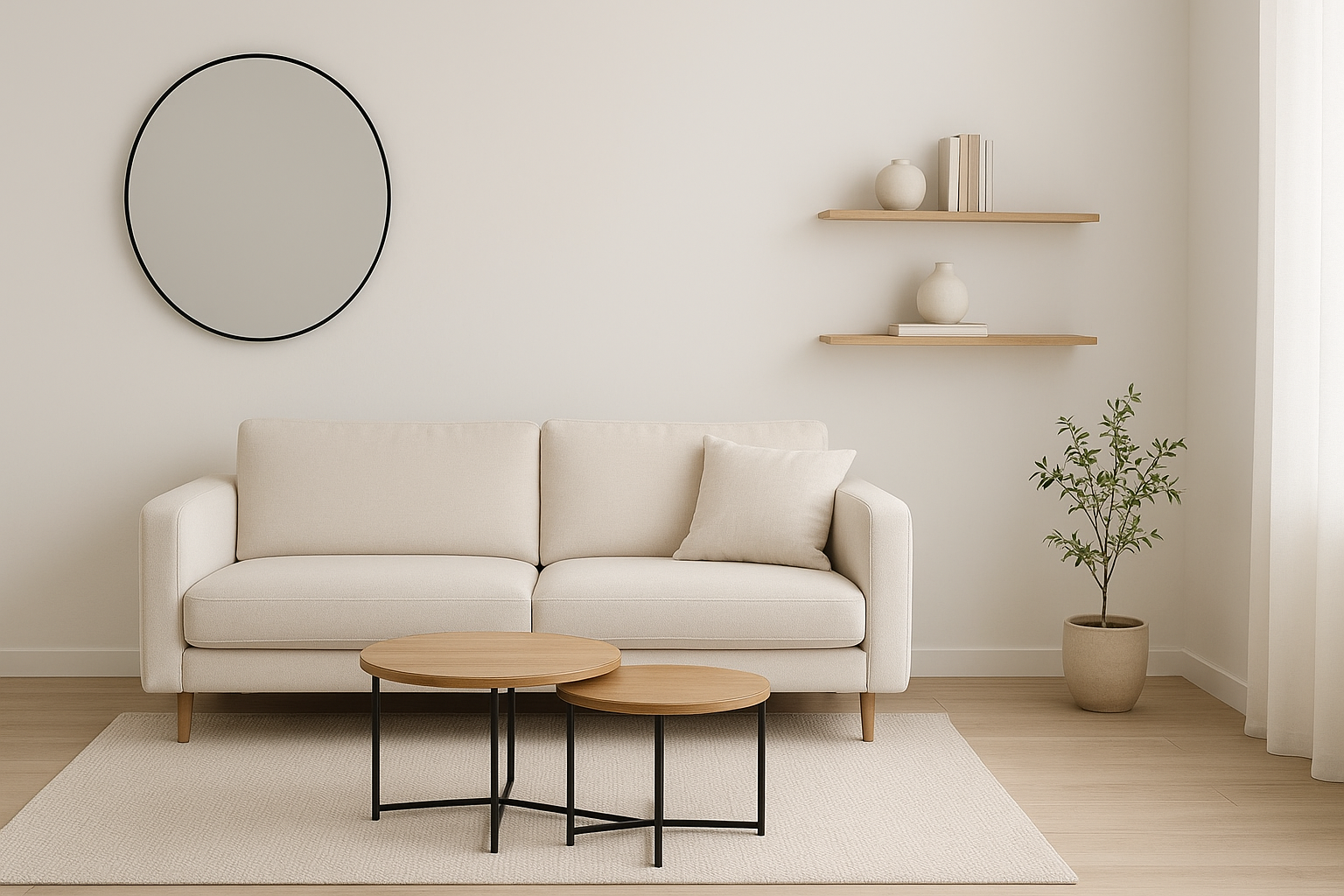
4. Textures for Warmth
Minimalism doesn’t have to feel cold. Add soft rugs, woven throws, and wooden furniture to bring warmth and coziness to your space. Textures balance the clean lines and make the room inviting.
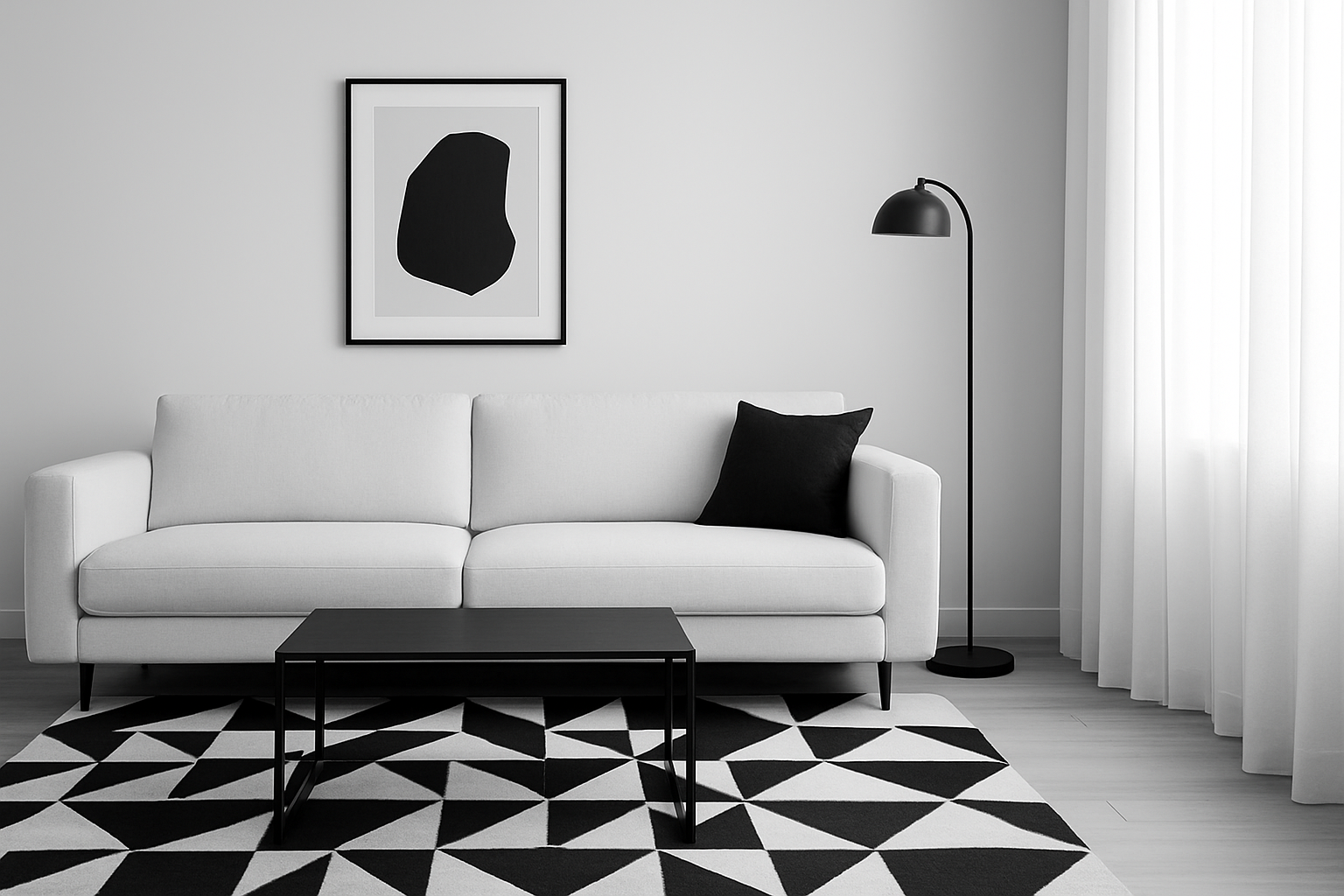
5. Decluttered Surfaces
Keep shelves, tables, and walls clutter-free. A minimalist living room celebrates open space. Instead of multiple small decor pieces, opt for a single statement artwork, a tall indoor plant, or a sculptural vase.
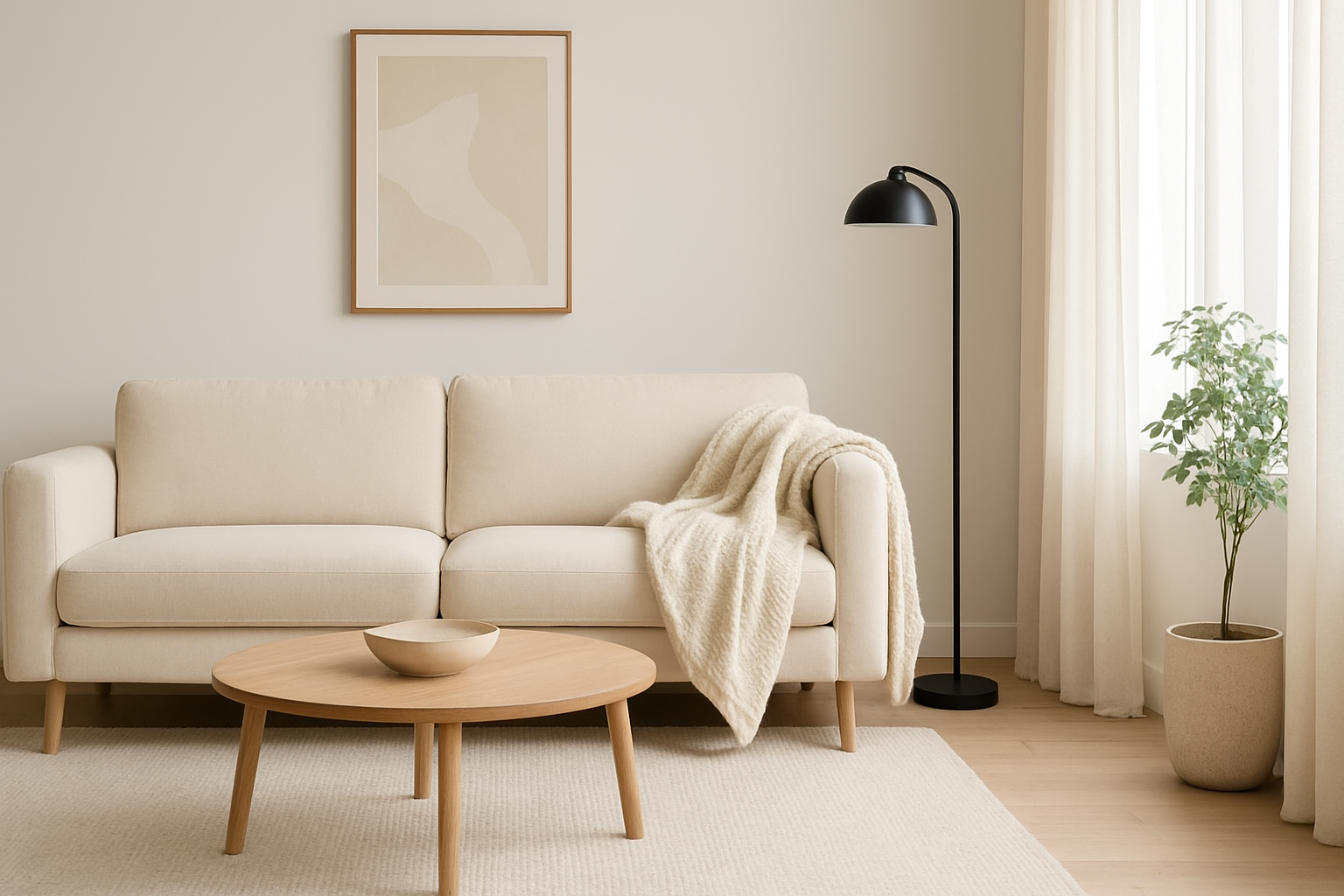
Styling Ideas for Different Homes
Small Apartments: Use multifunctional furniture like nesting tables and storage ottomans. Mirrors and light colors will create an illusion of space.
Family Homes: Focus on durability with a simple sectional sofa, neutral rugs, and plenty of storage to keep the room tidy while still welcoming.
Scandinavian Style: Add light wood, greenery, and soft textiles to keep the room bright, fresh, and cozy.
Modern Monochrome: A black-and-white minimalist living room feels bold and chic while keeping the clutter to a minimum.
Benefits of a Minimalist Living Room
Stress-Free Atmosphere: A clear space helps create a clear mind.
Easier to Maintain: Less clutter means less cleaning.
Timeless Appeal: Minimalist design never goes out of style.
Budget-Friendly: Investing in fewer, high-quality pieces saves money in the long run.
Final Thoughts
A minimalist living room is more than just a design choice—it’s a lifestyle that promotes peace, simplicity, and functionality. By focusing on essentials, embracing natural light, and incorporating cozy textures, you can create a space that is not only beautiful but also deeply relaxing.
Whether you prefer Scandinavian warmth, modern monochrome, or soft neutral tones, the minimalist living room style adapts easily to any home. Start small, declutter your space, and gradually transform your living area into a serene retreat where you’ll love spending time.